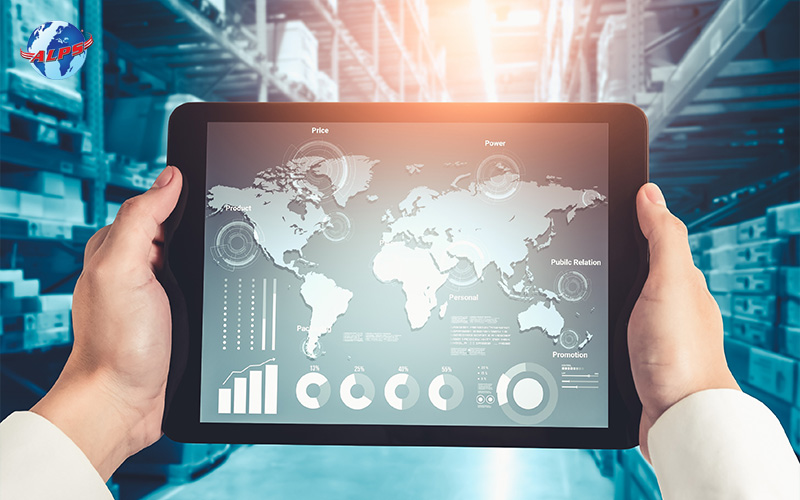Key Takeaways
- Increased Air Freight Demand: E-commerce giants are fuelling higher cargo volumes by prioritising speed and efficiency in cross-border and last-mile delivery.
- Shift to In-House Logistics: Companies like Amazon and Alibaba are building dedicated air cargo fleets to reduce reliance on third-party carriers and optimise control.
- Technology-Driven Efficiency: Innovations like AI, drones, and real-time tracking are transforming the air freight industry, offering both advantages and challenges for smaller businesses.
Same-day delivery. Real-time tracking. Precision logistics. These aren’t just industry buzzwords anymore—they’re the new benchmarks in the evolving world of commerce. Platforms like Amazon, Alibaba, Shopee, Lazada, and Taobao have set a new standard for speed and service, and in doing so, they’ve ignited a massive shift in how goods are transported across borders.
At the heart of this shift is the air freight industry. Once dominated by traditional cargo carriers and long lead times, it’s now being reshaped by the sheer volume, speed, and expectations driven by today’s leading e-commerce giants. As these companies build their own logistics networks and embrace emerging technologies, logistics providers and smaller businesses are being pushed to adapt or risk falling behind.
Let’s explore the key ways some of these big names are transforming air freight and what this evolution means for the rest of the industry.
1. The Surge in Air Freight Demand Due to E-commerce Growth
The most immediate and visible impact is a sharp increase in air cargo volume. With millions of online purchases made daily, and consumers expecting next-day or two-day delivery, especially for cross-border orders, shipping freight by air has become the fastest route to customer satisfaction.
Platforms like Shopee and Lazada have played a central role in fuelling this demand in Southeast Asia. Meanwhile, Taobao and Alibaba continue to bridge mainland China with international markets via express air channels. This surge is not only expanding the role of air cargo in last-mile delivery but also pressuring freight terminals, airports, and customs systems to handle more, faster.
2. Dedicated Air Cargo Fleets: E-commerce’s Shift from Third-Party Carriers
To meet rising demand without being limited by external constraints, e-commerce giants are building their own air cargo infrastructure. Amazon operates Amazon Air, a dedicated fleet of cargo planes with its own regional hubs in major markets. Alibaba, through Cainiao, has launched strategic air freight partnerships and even cargo aircraft leasing to control fulfilment from end to end.
This vertical integration allows these platforms to increase delivery reliability, optimise routes, and reduce costs, advantages that traditional carriers like FedEx or UPS can’t always offer on the same scale. The shift in air freight cargo services marks a growing trend where e-commerce players become logistics powerhouses in their own right.
3. Technological Innovations in Air Freight: From Drones to AI
Beyond fleets, e-commerce giants are also investing heavily in logistics technology. Drones, though still in the testing phase in many countries, offer a glimpse of a future where small parcels bypass ground congestion altogether. AI-powered systems are already in use, helping to streamline flight scheduling, predict weather-related disruptions, and manage warehouse-to-airport coordination.
IoT-enabled tracking tools now offer real-time visibility of packages throughout the entire air freight journey. These tools not only improve internal operations but also enhance customer satisfaction by enabling proactive updates and more accurate ETAs.
4. Impact on Smaller Businesses: Opportunities and Challenges
While the benefits of innovation are clear for major platforms, smaller businesses face a mixed landscape. On one hand, access to integrated logistics networks through platforms like Lazada and Shopee allows merchants to ship faster and more reliably than ever before. On the other hand, the expectations set by e-commerce giants put pressure on SMEs to match rapid fulfilment times without the same level of resources.
To compete, smaller players are increasingly partnering with flexible logistics providers who can tap into this evolving air freight ecosystem and offer scalable solutions tailored to their needs.
The influence of e-commerce giants on the air freight transportation industry is both transformative and ongoing. Their relentless drive for speed, visibility, and control has catalysed a new era of logistics, one where agility, innovation, and scale are no longer optional. For logistics providers in Singapore, staying ahead of the curve means embracing technology, forming the right partnerships, and continuously adapting to new demands.
At ALPS Global Logistics, we understand the challenges and opportunities brought on by this e-commerce-driven transformation. With our tailored air freight solutions, real-time tracking capabilities, and agile logistics support, we help businesses, from SMEs to large enterprises, navigate the fast-moving world of global shipping. Partner with us to optimise your supply chain and meet the speed and precision your customers expect.
Contact us today to know more!












